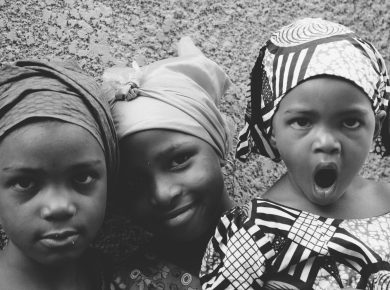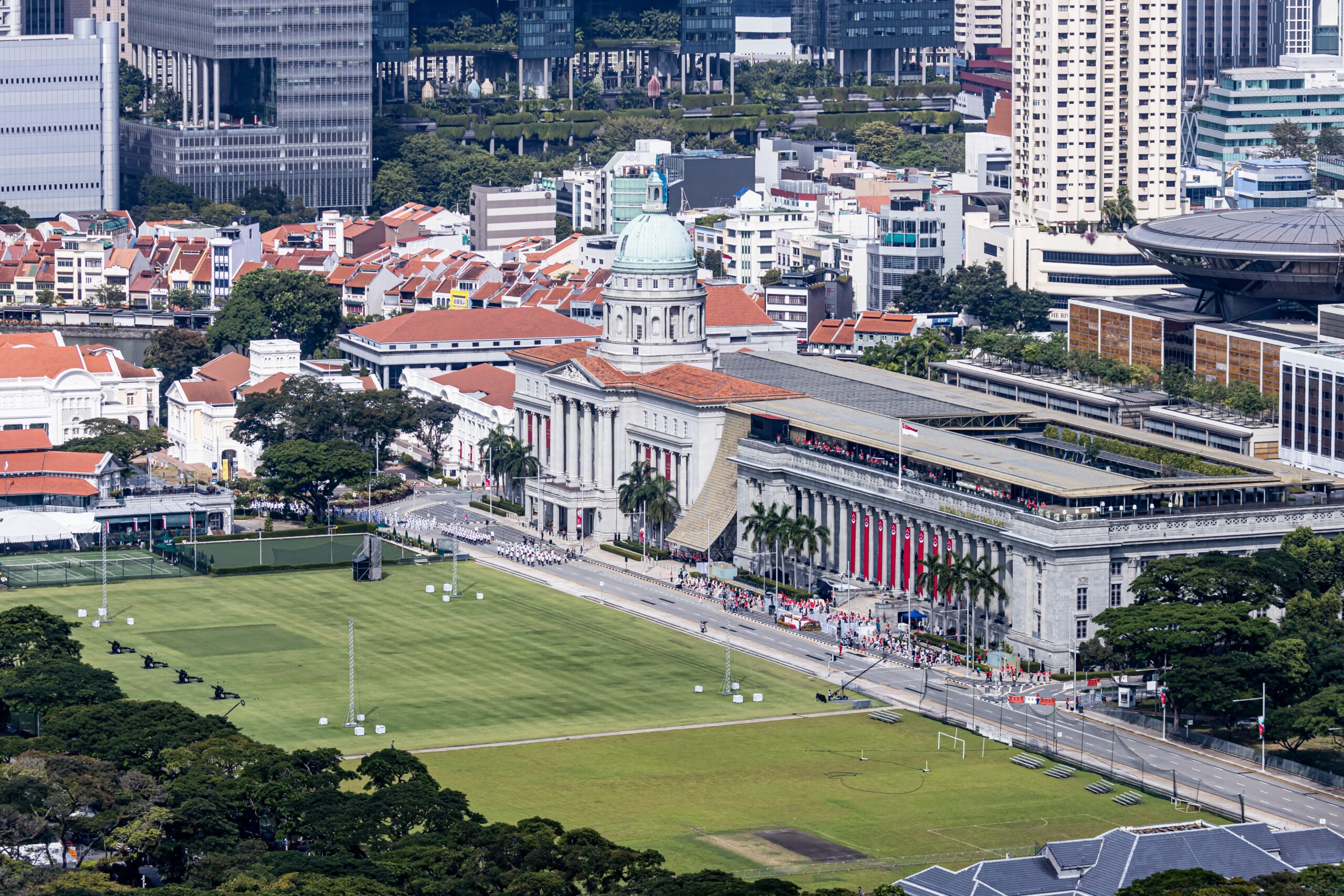The nature, scope, and methodology of economics, basic economic problems and concepts, elementary price theory and its application, demand and supply elasticity, theory of production and cost, functional distribution of income, and forms of business organisation.
ECO 112 INTRODUCTORY MATHEMATICS I 3C
Mathematical concepts of economics. The case for and against mathematics in economics. The real number of system factors and exponents, logarithms, coordinate geometry and basic trigonometry, the algebraic method equations, functions and progressions. Absolute values and inequalities. Economic applications.
ECO 113 INTRODUCTION TO STATISTICS 3C
Definition, nature, scope and purpose of statistics, sources and nature of published statistical data in Nigeria and their uses and limitations. Methods of collecting data-census and survey. Population and sample. Tables, Graphs and Diagrams. Simple ideas of probability. Frequency distributions. Measures of location, dispersion and variation.
ECO 121 PRINCIPLES OF ECONOMICS II 3C
Population-Malthusian Population theory; overpopulation, underpopulation, optimum population. Geographical, occupational and age distribution of the population. Ageing population.
Macroeconomic policy objectives and instruments: elements of macroeconomics. Economic systems, capitalism, socialism and mixed economy.
ECO 122 INTRODUCTORY MATHEMATICS II 3R

Introduction to calculus. Types of functions and their relevance to economics, functions of one variable and their continuity. The meaning of derivatives, maximum and minimum points, partial derivatives, application of differential calculus to optimisation problems.
Techniques application of differential calculus to optimisation problems. Techniques of differentiation. Logarithmic, trigonometric and exponential functions. Application of these concepts and methods in economics.
ECO 123 INTRODUCTORY STATISTICS II 3R
Inferential statistics, the concept of permutations and combinations. Probability theory. Estimation of sample statistics and population parameters.
Simple tests of hypotheses, correction coefficient, simple regression analysis, index numbers, times series, growth curves, correlation coefficient, simple regression analysis, index numbers, times series, growth curves.
ECO 211 MICROECONOMICS 3C
Theory of consumer behaviour, demand and supply functions, pricing determination, Utility and preference, elasticity, income, pricing and substitution function combination of factors of production. Indifference curve approach.
Topics in consumer and output pricing: Pricing and output under perfect competition, monopoly, monopolistic competition and oligopoly.
Pricing factors production and factor production returns to seal marginal productivity of factors of production: Theories of economic rent—basic concepts in welfare economics.
ECO 212 MATHEMATICS FOR ECONOMICS 3C
The function of several variable-geometric interpretations, the derivatives of trigonometry. Different and told differentiation. Maximal and Minimal. Langragian multi-differential and difference equations.
Sequences and series. Linear algebra-linear rule. Introduction to linear programming. Input-output analysis is, application of these concepts and techniques to economics.
ECO 213 MONEY AND BANKING 3E
Money is its means of development, its role in the economy. History of banking, growth of commercial banking in Nigeria, and the development of financial institutions.
Structure, performance, and competition of the banking system, other financial institutions, e.g. insurance companies, structure and performance.
The Africa currency board and the problems of domestic stabilization. Commercial banking and deposit creation.
Money, capital 1 market and domestic stabilisation, commercial banks and financial intermediation and the effectiveness of monetary policy. International monetary system; the IMF and World Bank ADB.
ECO 214 BUSINESS FINANCE 3E
The role, functions and organisation of financial management. Forms of business enterprise. Uses and courses of finance. Long-term credit-granting institutions: NIDB, NBCI, etc. Stock exchange and the new issue market. Concepts and analysis of funds flow.
Optimum capital structure. Cost of capital, Determinants and implications of dividend policy, Financial statement analysis. Capital budgeting.
ECO 215 ECONOMIC METHOD I 3C
The nature of economics. The deductive and inductive methods of reasoning in economics. The purpose, suitability and effectiveness of the method used.
The objectives of economics teaching and learning in secondary schools. The cultural, intellectual and vocational values of economics.
The problem of teaching economics in Nigerian secondary schools. Factors that influence the choice of methods of teaching economics. Different methods of teaching.
Provision and the use of instructional materials and equipment, economics curriculum and syllabus in secondary schools and colleges, types of lessons, format of lessons, steps in the development of lessons, setting objectives of a lesson, evaluations and summary of a lesson.
Evaluation of learning in economics questions and questions and questioning techniques evaluation of economic textbooks. Micro-teaching exercises.
ECO 221 MICRO ECONOMICS 3C
The nature and scope of economics. National income accounting, income determinations, the multiplier and accelerator principle; the classical and Keynesian employment and inflation, theory of interest rate, business cycle and the problems of economic growth.
ECO 222 ECONOMIC STATISTICS 3E
Review of descriptive statistics. Random variables and frequency distribution. Sampling Techniques. Estimation of sample statistics and population parameters. Measures of central tendency and variability.
Movements, Skewness and Kurtosis. The mathematical basis of probability, combinations and permutations, movement generating function (mgt), probability distribution functions, probability density functions (pdf); Binomial, normal(Gaussian), and Poisson distribution; correlation and statistical hypothesis, Index numbers and Time Series. Application to Economics.
ECO 223 BUSINESS ECONOMICS 3E
Nature and scope of business economics; objective functions of the firm; profit concept and measurement; structure of business enterprises; major functions of management;
Decision-making process, business decision and environmental factors; major functional areas of business; economic theory about management.
ECO 224 INTRODUCTION TO ACCOUNTING 3E
The nature, scope and purpose of accounting basic functional statements, Accounting conventions. Theory and mechanics of double-entry bookkeeping. Books of original entry. The cashbook and the ledger classification, recording and summary of business transactions.
The revenue accounts and balance sheets of business concerns. The evaluation of assets and measurement of business income, and the interpretation of accounts. Significant accounting ratios. Sources and. applications of funds statements. Introduction to social accounting.
ECO 225 STRUCTURE OF NIGERIAN ECONOMY 3C
The economic system of Nigeria. Population and labour force. Employment wages, output and process in agriculture, industry and trade. Sectional breakdown of the Nigerian economy, secondary and tertiary sections. Contributions of the different sections to the economy.
Changing the structure of the Nigerian economy. Trends in GNP and prices. Income and expenditure in the private and public sectors. Monetary and fiscal policies. Composition and direction of trade, Economic development and social change.
ECO 311 MICRO ECONOMIC THEORY 3R
Scope and method of microeconomics: Economic model building. Statistics, comparative studies, and dynamics. Partial and general equilibrium approach. Utility functions and indifference curves constrained utility maximisation, applications of consumer theory-rationing, worker and leisure, etc.
Costs and production functions. Optimisation in the theory of the firm. Monopoly, Oligopoly and Bilateral Monopoly. Types of production functions. Social welfare function and Pareto optimum.
ECO 312 ECONOMIC OF PRODUCTION 3E
Production function. Cost concepts and characteristics of cost, cost analysis and ascertained of industries. Plant layout and materials handling. Production and inventory policy and control, Queuing and Transportation.
ECO 313 MONETARY THEORY AND POLICY 3R
The theory of and the empirical results of the demand for money. Classical to Supply theory. The determination of the general equilibrium level of money stock. The effectiveness of monetary policy.
The real balance effect. Rulco vs. Authorities in Stabilisation Policy. Policy lags. Monetary Instruments and Goals. Concept of trade. Policy coordination. Theory of inflation. Theory of Interest.
ECO 314 LABOUR AND MANPOWER ECONOMICS 3E
The meaning and scope of labour and manpower economics. Labour force: definition and concepts.
Determination of sizes and composition of the labour force, nature of labour problems in developing countries. Concepts of unemployment. Industrial and occupational distribution of labour price.
The informal and modern sections. Labour market theories. Ways, theories, and determination. Labour unions in Nigeria. Labour union movement and bargaining power. Wage differentials. Employer-employee relationships.
Strikes and lockouts. Mobility of labour (causes and effects).Industrial relations in Nigeria. Investment in and efficiency of human capital.
ECO.315 ECONOMIC METHOD II:3R
Further practice in a micro-teaching exercise. Discussion of possible solutions to instructional problems encountered by students during teaching practice.
Further instruction on the improvement and refinement of students’ teaching skills in economics. Development of morals and skills. Case studies discussion.
ECO 316 PUBLIC FINANCE 3R
The nature, scope and methodology of public finance and fiscal policy. Comparison of government with business finance.
Sources of public finance in Nigeria. The financing of government expenditure. Principles and problems of public debt. Principles and goals of taxation.
Personal income taxes. Personal income taxes. The company’s income tax, import, export and excise duties. Federal, State and Local systems. Inter-governmental fiscal relations. External financing: government loans, grants and private foreign investment.
ECO 321 MACROECONOMIC THEORY 3R
Review of basic national income models: Static and dynamic equilibrium, indigenous and exogenous variables and the concept of economic model measurement of economic activity.
(GNP, GDP, Growth and development – concepts NNI).Basic models of income determination. Extension of functions. Isand IM diagram. Balance of Trade and Balance of Payments,
ECO 322 APPLIED ECONOMICS 3C
The structures of the Nigerian economy. Nigeria’s rate of growth, National income, Provisions, distribution and maintenance. Unemployment problems.
Small and large-scale industries and their problems, problems of agricultural production and modernisation.
Petroleum and the Nigerian economy. Foreign enterprises and the Nige-in Nigeria. Case study of policies and general development of Nigerian public corporations.
ECO 323 DEVELOPMENT ECONOMICS 3R
Growth and development concepts and measures. Distinctions between development and growth. Development and underdevelopment. The determination of growth and non-economic factors in development.
Theories of development and growth (classical, Marxian, Schumpeterian, Restow’s Harrod-Domar, etc.) Characteristics of balanced and unbalanced growth. Restore and technology. International trade and aid, capital accumulation and utilisation.
Problems of agricultural transformation, industrialisation and technological changes. Financing economic development plans. Development policy and problems of development in Nigeria.
ECO 324 ECONOMETRICS I3 E
Definition and scope of econometrics: stages of econometric research. Simple linear econometric model and regression. Ordinary least squares estimator. Multicollinearity. Autocorrelation.
Homoscedasticity and Heteroscedasticity. Simultaneous equation models and the two-stage least squares. Identification problem. Presentation and interpretation of results.
PROJECT ANALYSIS I 3E
Definition and classification of projects and project evaluation. The project and overall view of the development programme.
Data requirements. Location and size of projects, calculation of investments required for a project. Evaluation of projects.
Appraisal of projects from commercial and social viewpoints. Cash flow analysis, industrial location in the context of regional integration. Principles of Inter-industry relations.
ECO 411 ECONOMIC PLANNING 3E
The rationale for original and types of planning. Planning decision models. Planning data. Social accounting framework. Objectives and policy formation, Resources projection and consistency test programme balancing.
Plan implementation. Implementation problems. Development planning in Nigeria. Planning experience in other countries.
ECO 412 HISTORY OF ECONOMIC THOUGHT 3E
The sociology of knowledge and economic thought social environment, and economic ideas. Comparative survey and assessment of the development of economic Physiocratic thought and classical economics.
Neoclassical schools or thought position. Institutional economics, Keynesian school. Evolution and development of the Marxian school. Contemporary state of development in economic ideas. Prospects and the challenge of Third World development.
ECO 413 ECONOMIC HISTORY OF WEST AFRICA 3E
The agriculture, industrial, and commercial activities around the middle of the tenth century. The impact of foreign trade on the economy during the nineteenth century. The impact of the 1st and 2nd World Wars on the colonies. Political independence and the economic policies of the new states.
ECO 414 INTERNATIONAL ECONOMICS 3E
Introduction to the theory of trade and international finance, incorporating the presentation of various theories of international trade, foreign trade protection, economic integration, balance of payments, and foreign aid capital flows. The uses of international economics in explaining contemporary international relations and diplomacy.
ECO 415 PROJECT ANALYSIS II 3E
Project: concept and dimension. Project cycles. Techniques of project identification. Elements of project analy: i s; assessment of private profitability. Cash flow dimensions. Analysis of risks and uncertainties. Project evaluation review techniques (PERT).Project Implementation Assessment of Social Profitability.
ECO 421 COMPARATIVE ECONOMIC SYSTEMS 3E
Classification and analysis of economic system-communalism, slavery, feudalism, capitalism, communism, and systems in transition. Features of underdeveloped countries. Capitalism: values and goals.
The market system, consumption and investment decisions, price and labour policies, public finance, money and international trade. Capitalism in Britain, the USA and Japan. Socialism.
The planning of consumption and investment, labour policies and public finances, money and international trade and economic problems of socialism. USSR.
China and Tanzania. Communism: transition from socialism to communism. Distinguishing features of communism. The Third World: a system of transition, Features of underdeveloped countries planning for development, capitalism or socialism.
ECO 422 ECONOMICS OF EDUCATION 3E
Concepts-human capital, returns to investment in human capital. Introducing resource management review and application of resource allocation theory to the problem of investment in human capital. Investment in human capital: the choice between human capital investment and investment in physical capital.
The process of human capital accumulation. Determinants of human capital accumulation, in-power planning and the relationship between Manpower planning and unemployment as special human resources management (with special reference to Nigeria).
ECO 423 ECONOMETRICS II 3E
Extensions of the two-variable linear model. Introduction to matrix algebra and algebra. Violations of linear assumptions and correction of serial correlation, Stoachesti@ regressions and errors in variables.
Identification problems: Meaning and the choice of estimators. Practical solutions to problems and familiarity with computers are to be nurtured and encouraged. Discussion and interpretation of econometric research reports in various journals.
ECO 424 RESEARCH METHODS IN ECONOMICS 3E
Definition of research. The role of development research. The uses of different statistical procedures: including survey methods, correlation, regression analyses and analysis of variance.
Concepts and use of mathematical methods of research-operations research, mathematical economics and programming.
Two-way ANCOVA, Research designs. The nature, problem and limitation of empirical economics research. Problems of validity and reliability of instruments and research design. Writing research reports and interpreting research results.
ECO 425 RESEARCH PROJECT 4C
An original essay of not less than 8,000 words based on an empirical or library study on an approved topic, covering specific areas of economic activity or dealing with significant economic problems in Nigeria and making use of relevant raw data collected by the student.
There is no how we can learn about Economics without the knowledge of business and management. You will have to learn more here.










